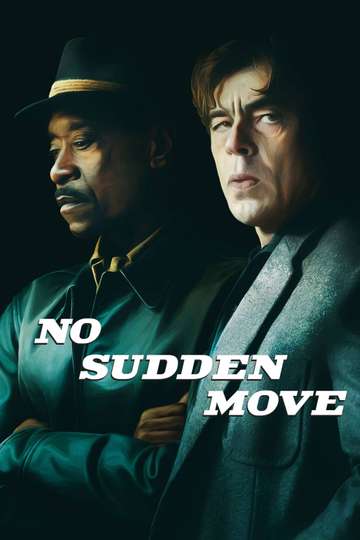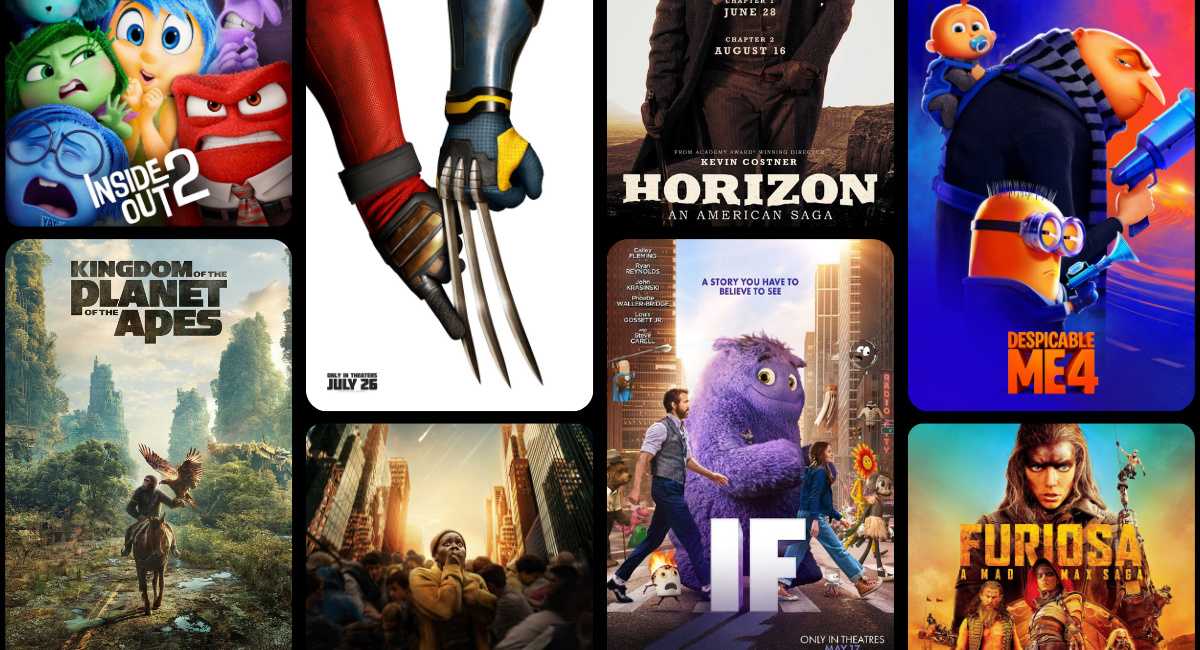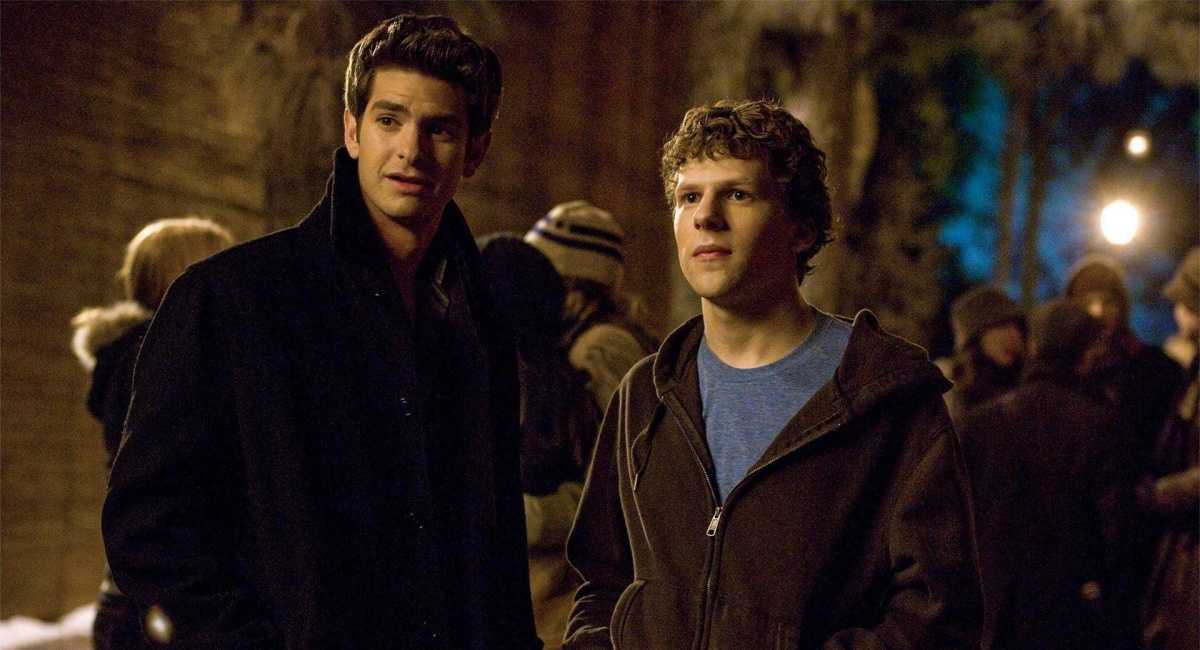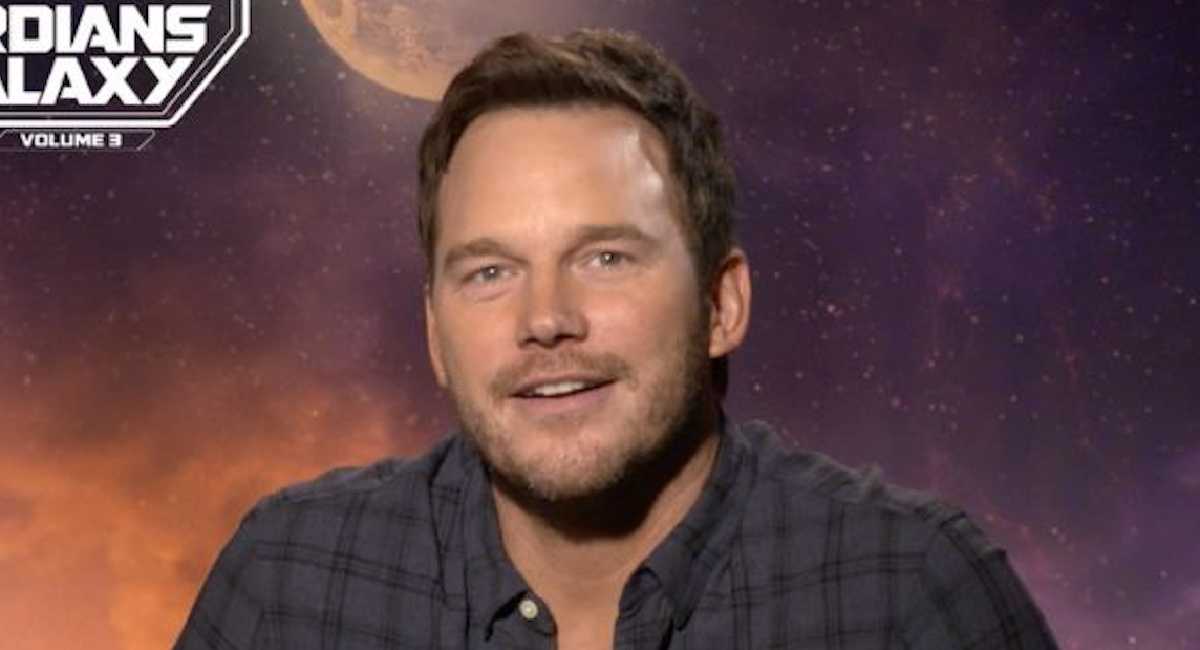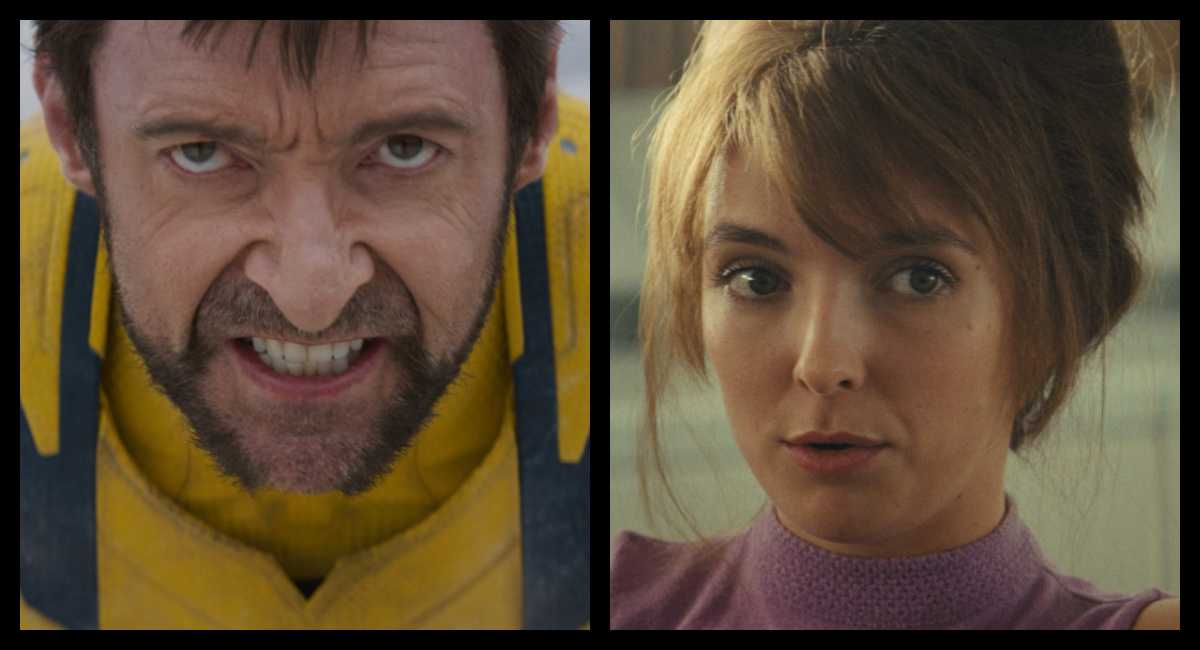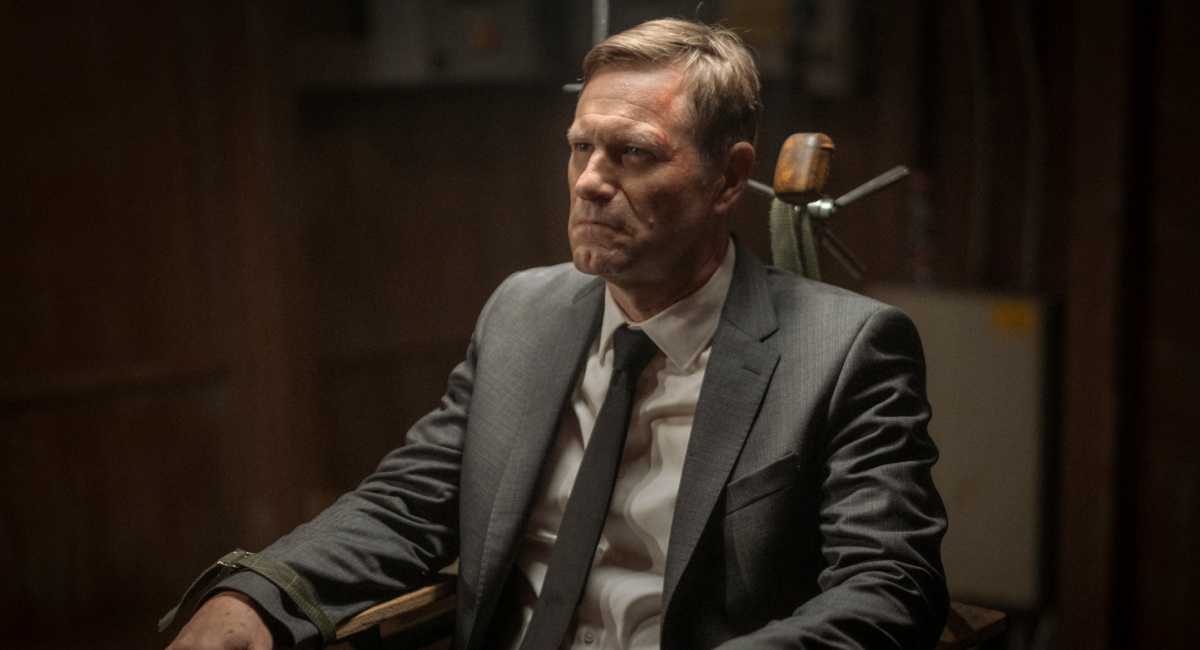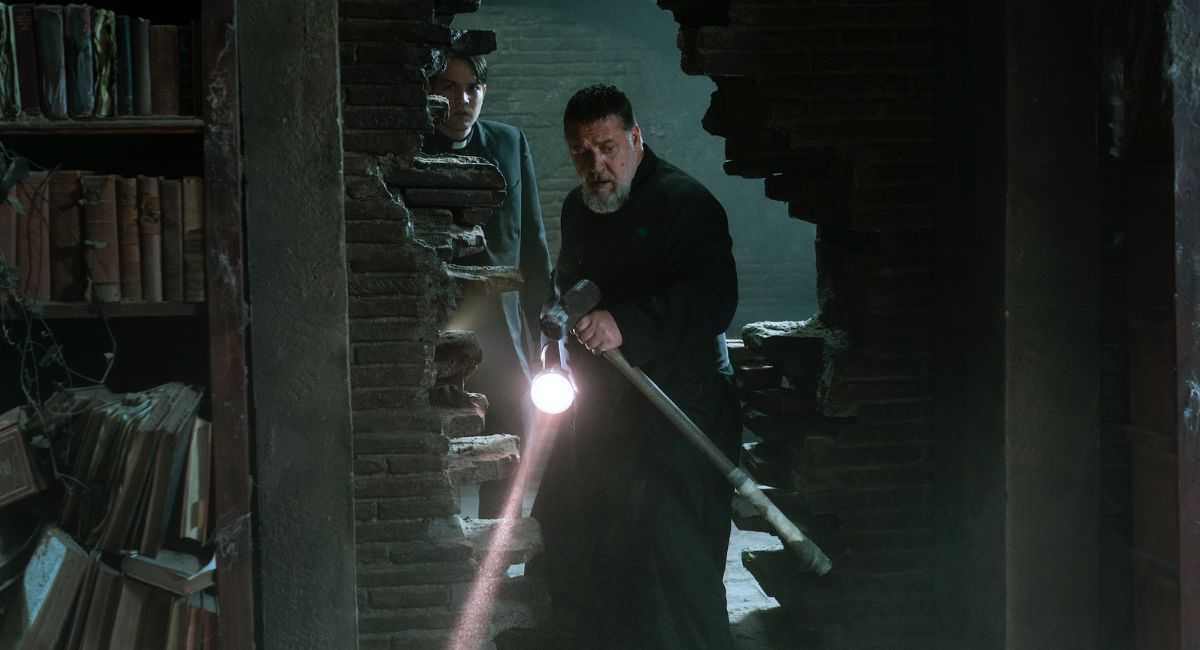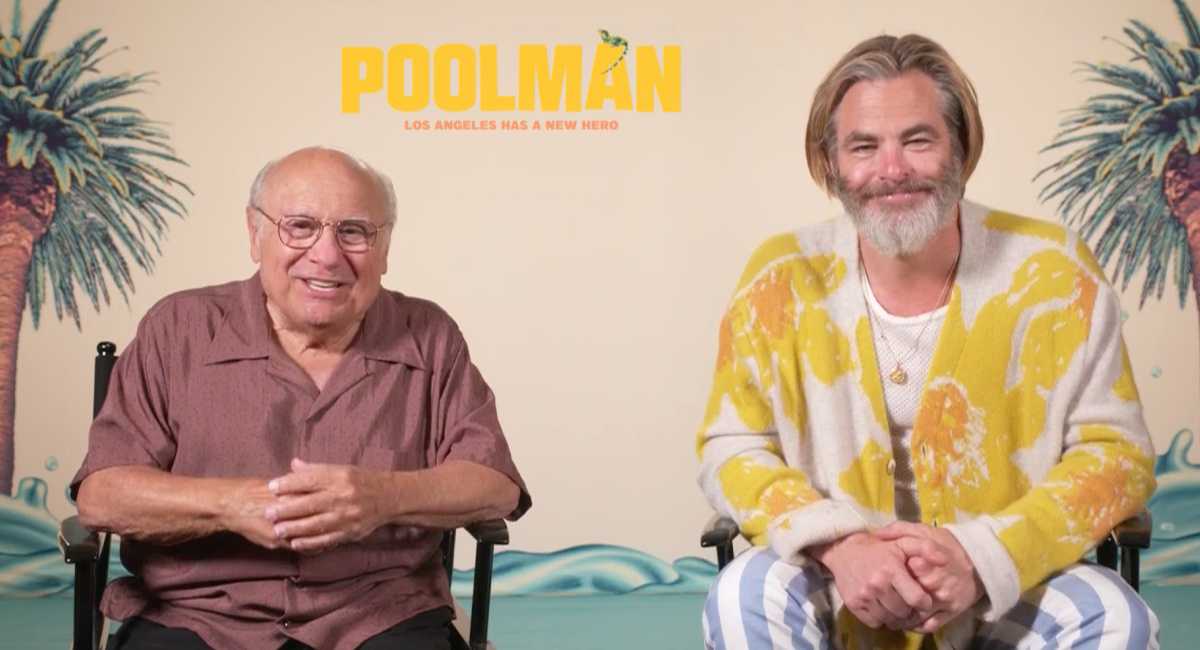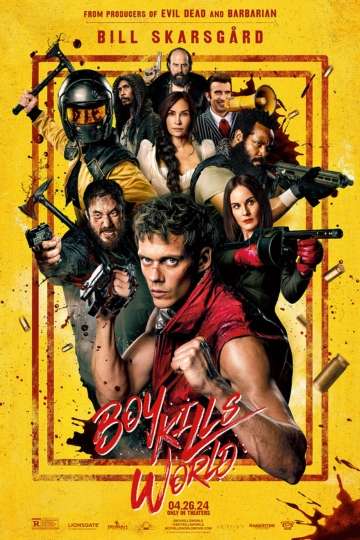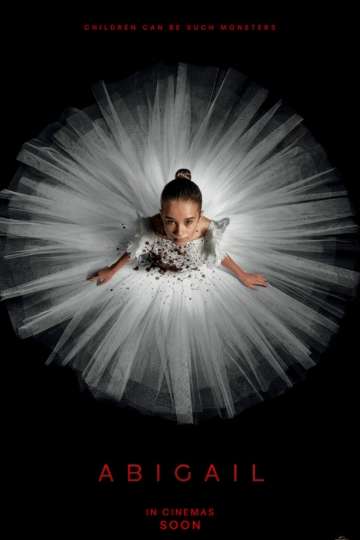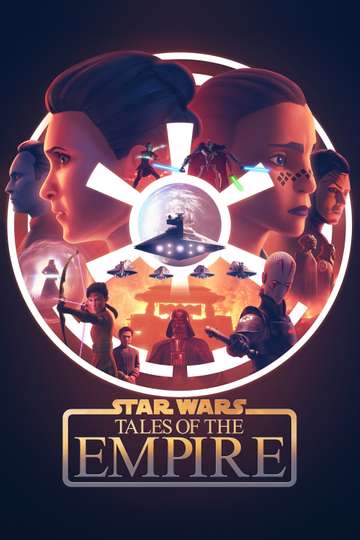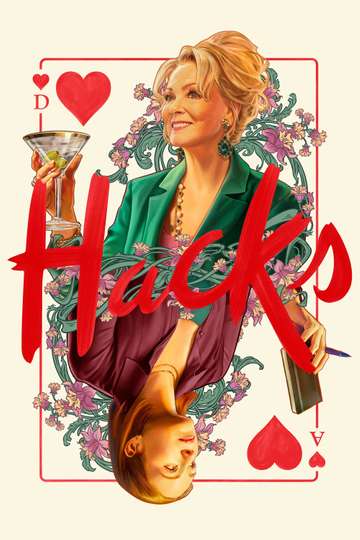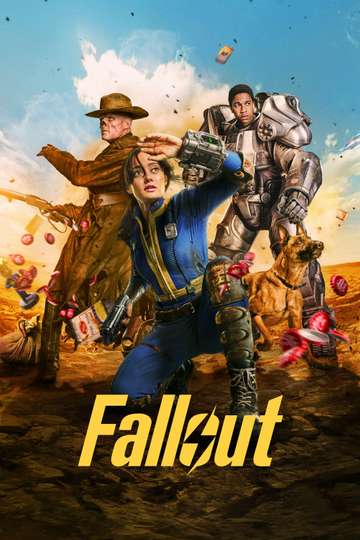'No Sudden Move' stars Don Cheadle, David Harbour, Jon Hamm (and more) talk about their new period thriller
The stars of Steven Soderbergh's new crime thriller talk about working on the film.
'No Sudden Move,' Steven Soderbergh's new crime thriller, is set in Detroit in 1954, and the film boasts a very impressive cast. Don Cheadle, Benecio Del Toro, and Kieran Culkin play a trio of hoods, Brendan Fraser plays the man that put the trio together, and David Harbour, Amy Seimetz, and Noah Jupe play the family that the hoods take hostage. Bill Duke and Ray Liotta play crime lords, and Jon Hamm plays the detective trying to get to the bottom of it all. The cast of the movie took some time to tell us about their characters and the movie's twists and turns.
Don Cheadle and Benecio Del Toro talk about working with director Steven Soderbergh.
Moviefone: Don, did you see the tension in the film when you signed on?
Don Cheadle: Yeah, I really enjoyed the script that Ed Solomon wrote. I thought it was really good. And when I knew Benicio was in, it was a no-brainer to say yes, and we had a lot of fun. It was pretty intense working under those conditions. We were one of the first projects to come back with the COVID protocols and Steven wrote the protocols for the DGA. So we felt like we were in good hands with him, but it was, yeah, the whole thing was an experience and shooting in Detroit and these locations that are still there, this great architecture in these cars and then the costumes. It was just great.
MF: Benecio, how do you describe these two characters, these two guys, and what they do and who they are?
Benicio Del Toro: Well, I think they are two criminals that come together and they just go on this journey to, led by greed, or so we think, and then we go on this roller coaster of all kinds of situations that happens to them, and the betrayals that happen and all that stuff. I think this movie's a lot of fun that way.
Cheadle: No doubt.
MF: I just talked to Ray Liotta and he summed it up by saying, "Everybody is scummy," and I thought that was kind of perfect. What I really love too, Don, is I feel like as an audience member, I was finding out things and discovering things along with the characters.
Cheadle: Yeah. That's some of the fun of this, I think, is that you don't really get ahead of it. You don't know what's going to happen and things keep being revealed along the way. People's motivations are shifting and allegiances that you think are one way go the other way. And I think between David and Benicio's and my character, we're all on these separate journeys that somehow come together, which is really a testament to the script and Steven.
Del Toro: Yeah. Yeah.
MF: Benicio, what is it about Steven Soderbergh, or a Soderbergh production?
Del Toro: I tell you what, he gets you home early while you're shooting on the movie. We finish about 10 days early. I think he knows exactly what he wants.
Cheadle: Yeah.
Del Toro: He knows that story back and forth better than anyone on the set. And he's just a 100% there while you're shooting. He's like a machine. And the minute I knew that Don Cheadle and Steven Soderbergh were attached to the project, Steven called me up and I said, "I'm in. I don't have to read it." It was that simple for me. So I'm just happy that the movie also is working.
MF: It worked so well, and I was thinking about the name of the movie, No Sudden Move, because as I was watching it, when any of you guys made a move, I was like, "Oh, well, that's not good. That door opening, that's not good."
Cheadle: Right.
MF: It's literally someone turned their head and I was like, "Oh, what's about to happen next?" I mean, it was a fun little ride.
Cheadle: Yeah. The movie was renamed during production because the other name that it had that we won't even bring up was used by another movie. So Steven just kind of came up with "No Sudden Move." And he said before he even kind of told us that he was on the set and the guy drove by in a car and said, "What's this movie?" And he said, "It's called No Sudden Move." And the guy said, "Sounds like a thriller." And he went, "Okay, that title works."
MF: Thank you to that guy for driving by and saying that.
Del Toro: Yeah. That's right.
MF: I also liked the idea in your work that you guys do, you really have to trust your director and editors and all that, but the world that these guys live in the characters, there's no trust.
Cheadle: No trust. Yeah. Nobody trusts anybody. Everybody's waiting for the person next to them to cut their legs out from under him, which is great. I mean, it's cool for the audience, I think, to try to figure out who's scummier than the last, and who's going to come out on top.
Del Toro: Right.
Cheadle: And I think the film holds that tension for the whole time.
Bill Duke and Brendan Fraser discuss how the movie keeps the audience guessing.
MF: I can't remember the last time I cussed this much watching a movie because every time something happened, because it was really a ride. Did you guys have that kind of same experience being in the movie, Bill?
Bill Duke: Well, working with the actors that we worked with, was a wonderful experience. And following the script, it's like, it's one thing to memorize your lines, but when you're in a scene with Don Cheadles of the world and the Matt Damons et cetera, and all the actors, it was like a very, very, very insightful, wonderful experience. Put it that way.
MF: Brendan, and the same for you, kind of just riding the moment?
Brendan Fraser: I knew it would be exciting. It's a multi-layered screenplay with plenty of twists and turns. It'll keep you guessing. It's a story of redemption in many ways. Although we see these anti-heroes that populate the screen and everyone gets what they deserve by stories. And I felt great knowing that this is a genre that Steven Soderbergh absolutely excels with. And I guess the excitement just came mostly from seeing the film in its entirety and going, wow, that's the product that you get when you work with the best that there is in the business. It was exciting.
MF: I really enjoyed, as a member of the audience, that I felt like I was finding out stuff, as you guys were founding out, or the characters, like we were all in it together.
Duke: And that's not easy to do, because the thing is, as I said before, he has the ability to stay ahead of the audience, because once the audience catches up, you're done. Right? And he doesn't do it in a corny way. I mean, he just hooks you and just takes you through his journey until the end. And sometimes there's not an end-to-end, but it's the end of the movie, but there're other things that's why this movie didn't have an end-end. Don walks off, right? But what is he walking off into? Nobody knows. He doesn't even know really.
Fraser: And he entered the world of this film with a walk too. So it really completes his journey. And as the credits roll, we learned that the overriding theme of what we've seen and how exciting it is, and it is. Prior to that, there's some truth to what really happened in those days, with regard to what the prize is in this film that everyone's chasing up. And they're all chasing something different. Exactly. And that's really the technology behind the catalytic converter, which is, was suppressed by the car companies for some 25 years, until it was mandated by law, that this technology is put into cars so that we can all breathe cleaner air. And it leaves you wondering, why couldn't we have done this sooner? Well, there's some very powerful forces of greed at work in our world. And hopefully we can move on from there. I don't know. That's the answer. That's the takeaway I get from it.
MF: Quickly tell me like who your characters are. Brendan, who is Jones?
Fraser: Doug Jones likely fought in the war. He survived it. I don't think he participated in a way that... I just think he probably got up to no good during that time. Came back to America and didn't get with society and the program and decided that a life of crime was his. He's working his way up the management chain of organized crime. I found it helpful to understand the character as being rotten to the core by wearing false teeth that were really nasty. He gets his, just like everybody else. So I'm not telling tales out of school.
MF: And Bill for you is, is your character just a bad-ass boss?
Duke: No, he is part of a tradition. I think his family, his father was an O.G. and I think his father's father, maybe it was what they taught him was about power. In power, you don't talk power. You be power. As I said before, if I know where your kids go to school and where you asleep, I'm going to ask you a question. And I just expect an honest answer, because you'll know if you lie to me, there'll be consequences.
Amy Seimetz and Frankie Shaw share their experiences making the movie.
Moviefone: Frankie, let's talk about life on the set. What is life on a Steven Soderbergh set like? What was that experience?
Frankie Shaw: So he's super collaborative. He makes you feel like you're a genius and he knows exactly what he wants, and has the whole movie in his head already. And there's no fat on it, so he just shoots what he needs, because he's going to edit later that day. And yeah, it's like a really fun vibe. He's serious and he's jokey. And he's just like maybe the smartest person we've probably ever met.
MF: Well, that's a nice review of a guy. I was talking about this movie, how, what you guys do, you trust your director, you trust your sound people and your editors, but this world that we're living in, there's no trust for anyone in any of these characters. I didn't trust anyone from the very beginning, and that helped me throughout the entire movie.
Amy Seimetz: I think that's part of the fun and part of, with the twists and turns, it's like, you're never, in the way that he's shooting it, even just watching it again and also being on set and seeing how he framed everything. Everything's like a little off-kilter, so you never feel completely grounded. And that goes for with the characters too. You can't trust, you're never on firm grounding with any of the characters.
MF: Yeah, Frankie, I thought the name of the movie was perfect because as a viewer, as an audience member, anytime anyone in the film made a sudden move, or any kind of move, I was like, well, that's a bad sign. Like if a door opened, I was like, that's a bad sign. Someone looked to the left. I was like, what's he looking at?
Shaw: Yeah, there wasn't a lot of reason for these characters to trust. So then they became untrustworthy, I felt like. But if you really go, and all the actors were so incredible. And I feel like did such a good job bringing in the history, their history to the current moment of where they were at. And so, I don't know, even through their deep untrustworthiness, you really felt for them.
Jon Hamm and Noah Jupe talk about the complex plot.
Moviefone: Jon, my gift and curse in life is that I can usually tell where a movie is going. I'm like, I see what's happening here. This movie proved me wrong time and time again in the best way possible. Did you see that when you guys first signed on?
Jon Hamm: It's baked into the script, for sure. The complexity is there on purpose and Ed Solomon is a phenomenal writer and set out to write a very twisty and turny heist movie, essentially about the catalytic converter, which on its face sounds like a ridiculous idea, but is actually, especially because it's based on true events and reality, it's an ambitious story to tell, and it's a very compelling story. Cause it wraps up so much about American history and racial politics and how the car culture basically ruined neighborhoods in inner cities that were low income and majority minority neighborhoods. And this is all part of history that kind of got literally bulldozed, but it should not be forgotten.
MF: Noah, your character is one of the few people I trusted in this movie. How did you find him? What did you make of Matthew?
Noah Jupe: I really liked Matthew. I thought he was really interesting. I connected with him a lot. I feel like in that situation, I had actually hoped I would also do the same thing as he did. I thought it was very strong. He knew he could read a person very well. I felt like he knew exactly who to trust and when to trust them, and who he couldn't quite get a handle on. And for example, his relationship with Don's character is very interesting. Because I think by the end of the meeting, I think they always do trust each other a little bit. And so it's very interesting to explore that in the scenes and yeah. Honestly, I just love playing Matthew.
MF: Jon, what was life like on a Steven Soderbergh set? What is that experience?
Hamm: You feel very taken care of. I will say that, especially given the fact that we were shooting this in October-November of last year, so pretty deep into the pandemic situation in Michigan, but you definitely feel there was a very strong hand on the tiller, so you know that there's a plan for the day, there's a plan in case something goes wrong, everything is planned out, and you get your work done, and then you go home. And we were all staying in the same hotel. We were in a bubble, so to speak. So, we all got to go home early and have dinner like adults. And it was very much a professionally run set. And then to be able to be a part of something that's so creatively ambitious and beautifully crafted was kind of a bonus.
Lastly, Ray Liotta and Julia Fox discuss their married character's relationship.
Moviefone: I don't know if this is a direct reflection of the movie, but I no longer trust either one of you. That's kind of the world we're living in. Ray, what was it about this whole concept that made you want to sign on?
Ray Liotta: Well, basically I liked the script, and to work with Steven. I'd worked with Don before, not Benicio, which I wanted to do. So, the combination of things made me... Yeah, I was just in and out really quick, but I just wanted to do it.
MF: Julia, this whole concept of we can't trust one person. You literally can't trust the next guy. Did you see that in the script originally when you first read it, or did it kind of open itself up as you guys shot the film?
Julia Fox: It definitely opened itself up, I think. I did not see what I did coming at all. But I totally understood it, and I sympathized with her, and I think being a woman in the forties must've been really tough, and she wanted to level the playing field. So, I loved her and when I read her. I said, "this is me, I can do this, I have to do this, I was born to do this," and I did.
MF: Let's talk about their relationship, then. This is a couple, you two play a couple? But it's complicated, is it not?
Liotta: Yeah. No question. I think we probably got married young, and I was doing the stuff that I do, and she ends up cheating on me. And so, it was just interesting.
Fox: You deserved it, though. (Laughing)
MF: Julia, how did you find the relationship? What did you make of it?
Fox: Yeah, it just seemed like what Ray said, that back in those days, a woman's worth was dictated by who she's married to. And if you're not married, you're worthless. And if you... You know what I mean? And, I think it was that same thing. It was kind of out of opportunity, out of convenience. I'm sure maybe there was love or lust there at some point, but eventually love is not enough. Money comes then, and that's the overpowering force, I think.
And the theme of the root of this whole movie, is just the greed and desire for more, and it's not enough. Keep pushing more, and more, and more, and never satisfied. And then eventually the house of cards falls.
MF: I just watched the movie last night, Ray, and I'm still in knots. Did you get a sense of that when you guys were shooting? That this was going to be so tension filled?
Liotta: Well, you don't really know how they're going to put it together, but each scene has, for lack of better words, a rhythm within itself in the way that it's written. Yeah, but the stakes are intense, and I know Benicio, and I don't know he's fooling around with my wife. No, I do eventually figure it out, because I confront him.
So, you never know how they're going to put it together. It's more Steven and the editors, with the music, and the way it's cut that makes it move along.
MF: I bet that's interesting, though, because you do have to trust your director. You have to trust everyone on the crew. You have to trust your editors. And then this world that the movie encompasses is a world where no one trusts anyone else, there's no trust at all.
Liotta: Yeah. Not at all. Everyone's kind of scummy.
'No Sudden Move' is now streaming on HBO Max.
